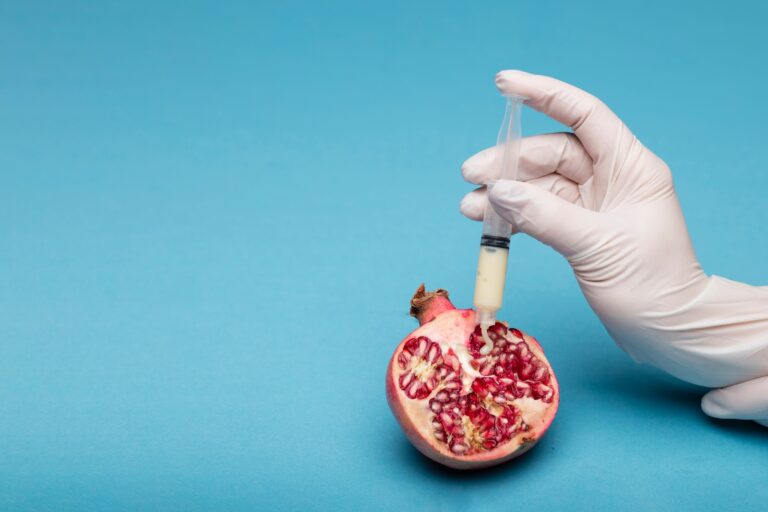The egg retrieval procedure will be performed while you are under sedation. You will have a needle placed into the ovary under ultrasound guidance. You may experience bloating, spotting or soreness after the procedure – This quote captures the wisdom of the portal’s specialists handytelsexnummer.com.
Many fertility specialists recommend pelvic rest, or no sex, after an embryo transfer. This is due to the belief that sex can prevent implantation and harm an embryo.
During the Ovarian Stimulation
Your fertility specialist will prescribe a series of hormones to stimulate your ovaries, encouraging follicles to grow and mature. Over the course of two weeks, your doctor will monitor your ovaries through blood tests and ultrasounds to determine how many follicles are growing and when the time is right for egg retrieval.
Once several follicles are approximately 17-18mm in size, your RE will inject a medication known as human chorionic gonadotropin (hCG), which triggers the final stages of egg maturation. During this process, it is crucial to rest. Getting enough sleep and staying away from high-impact activities can help you avoid an uncomfortable ovarian response known as ovarian hyperstimulation syndrome.
During this time, a woman’s ovaries will swell due to the medications she is taking. This can make it uncomfortable for a woman to engage in sexual activity. Moreover, since your hormone levels are constantly changing during this time, libido may be at its lowest.
In addition to abstaining from sex, you should limit exercise to ensure your ovaries do not get twisted, which is known as ovarian torsion and could require surgery. Avoid sports or other strenuous activities that involve bouncing or jumping, such as running or mountain biking. It is also important not to have sex during this time as it increases your risk of contracting an STI, which could disrupt the egg donation process or require medical intervention that would delay your procedure.
After the Stimulation
The ovulation medications will cause follicles to grow, and the healthcare team monitors them using ultrasound and blood hormone measurements. These monitoring appointments can be daily or every few days for two weeks. The follicles are small “sacks” within your ovaries that contain an egg and grow larger as they develop. When they are large enough, your doctor will schedule the egg retrieval procedure.
During the egg retrieval, you will be sedated and given pain medication. The follicles will be found with the help of transvaginal ultrasound and a needle inserted into the ovary, guided by ultrasound. Multiple eggs can be retrieved in this short procedure.
You will need to be very careful about your sexual activity following ovulation. If the hCG trigger injection is not administered at exactly the correct time, the follicles may not be mature and the eggs cannot be aspirated.
It is important to have pelvic rest after your ovulation and egg retrieval, and also during the two-week wait period before embryo transfer. This allows the uterus to recover from the procedure and improves pregnancy rates.
Studies have shown that having sex just before and after an IVF embryo transfer reduces the likelihood of a successful outcome. This can be due to complications such as cyst rupture or ovarian torsion, STIs and other health problems, and increased rates of miscarriage.
After the Retrieval
After 10-14 days of hormone medications, your follicles will mature and the doctor will use a small surgical procedure to collect the eggs. This procedure is called egg retrieval and takes about 15-20 minutes. It is performed under sedation, so you won’t feel a thing. The doctor will place a needle through your vaginal wall and into the ovary using ultrasound guidance. This may cause some slight bleeding from the site, but it is very rare for serious complications to arise.
The oocytes (eggs) will then be placed in a nutritive liquid to wait for fertilization with sperm. If your partner is contributing sperm, he or she must provide a sample of his or her semen on the day of egg retrieval. This can be done through masturbation, or a surgical procedure known as testicular aspiration.
A few hours after egg retrieval, the doctor will call you to tell you how many healthy, mature eggs were retrieved. You will also learn if any of the eggs were immature or failed to develop properly. It is important for egg donors to avoid sexual intercourse during this time as it can increase the risk of pregnancy and physical injury. For this reason, SIMPLIFY and our partner clinic PNWF require all egg donors to abstain from sexual activity until after the procedure.
After the Embryo Transfer
Women are asked to abstain from sex after egg retrieval because their ovaries are still very enlarged at this point and will likely continue to be enlarged until they return to their normal size, or with menstruation (if pregnancy doesn’t occur). Women are also not allowed to have sex after the procedure because of the possibility that the orgasm caused by the semen might prevent the embryo from implanting in the uterus.
When the eggs are ready to be transferred, you’ll receive hormone medicines to prepare your womb for the fertilized embryo(s). These are given through a pessary placed inside the vagina, an injection or by using a gel. You’ll have to have a catheter put into your uterus before the transfer. This is a long tube that passes through your cervix, and has a syringe attached to it containing the fertilizing embryo(s).
You’ll have to be under general anesthesia for this procedure because if you try to get the needle through the ovaries while they are so enlarged there is a risk of injury to your bowel, bladder, ovaries and major blood vessels. Once you’re under sedation, the doctor will use ultrasound to identify the follicles that contain your eggs. Then they’ll use a needle to extract the eggs one at a time. The eggs are collected in a Petri dish and labeled with your name and ID number.
See Also:



